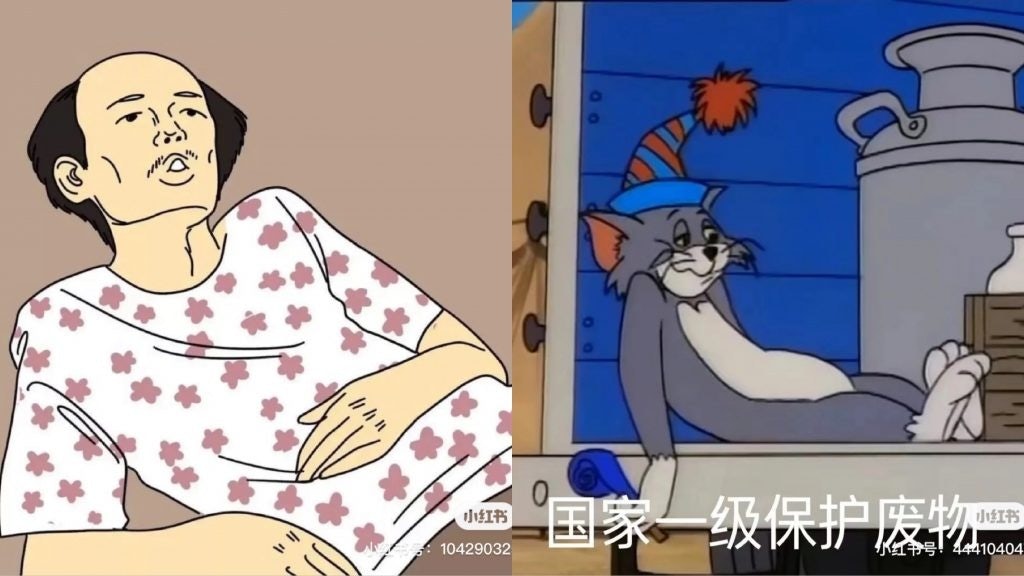What happened
Forget about lying flat. A new expression is in vogue among young Chinese netizens: “let it rot” 摆烂. So far, on Weibo, the related hashtag has accumulated over 93.2 million views and searching for the phrase on Xiaohongshu results in over 2.6 million user-generated content (UGC) instances.
This buzzword is an evolution of the Lie Flat movement that went mainstream in China last year. While those that lie flat rebel against the grueling 996 work culture and champion a chilled-out lifestyle, doing just enough to get by — not unlike the “quiet quitting” phenomenon on TikTok — let it rot has a more negative connotation. It refers to people who are disillusioned and would rather give up to prevent a situation from deteriorating (the word is often used by NBA fans to describe players who stop trying when defeat is evident).
The Jing Take
Whether it’s let it rot, lying flat, or emo, these trends should not be written off. Not only do they reflect the young generations’ struggle to balance their work and social lives, but they also convey a sense of despair over the country’s economic trajectory and their personal growth prospects.
Gen Z witnessed their parents’ lives improve as the country developed in the late 90s, and expected to see the same success or even achieve a better life through studying hard at university. According to China Youth Daily survey in 2021, as many as 68 percent of college students estimated they would be earning 1 million yuan (155,000) yearly within ten years of graduating. To their surprise, what awaited them was a recession, a historically high youth unemployment rate (19.9 percent), and unaffordable housing.
All these factors have led to increasing frustration among locals, who have started pouring out their emotions on social media platforms. In the form of emojis and jokes — the cultural symbols of today’s youth — netizens criticized the exploitation of capitalism, marriage pressures, and many other contemporary issues. One Weibo user posted: “No matter how hard I work, I’m working for capitalists.”

The passive let it rot phenomenon is likely to aggravate China's already slowing economy. But businesses should not be alarmed. Just like lying flat, the ones actually practicing this kind of lifestyle are only a few. What youth are looking for is to be listened to by society and brands. When it comes to marketing, the emotional values and healing ability embedded in a brand and its products will be increasingly crucial to make the final transaction happen. The winners will be those who capture these signals and adjust their offerings accordingly.
The Jing Take reports on a piece of the leading news and presents our editorial team’s analysis of the key implications for the luxury industry. In the recurring column, we analyze everything from product drops and mergers to heated debate sprouting on Chinese social media.


